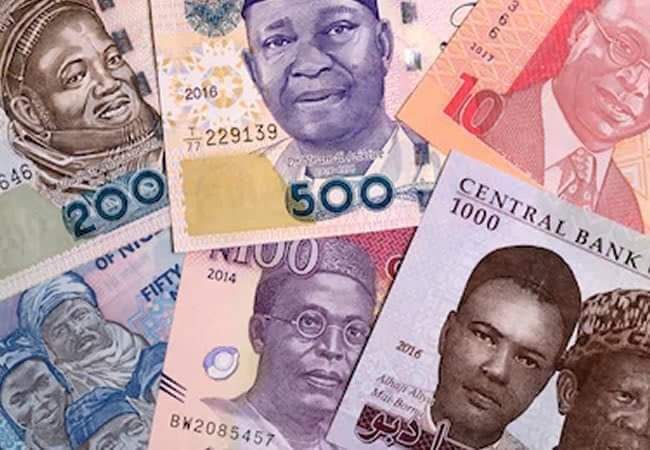Currency change: This ain’t 1984!
The sudden change of the country’s legal tender by the Buhari/Idiagbon junta in 1984 threw many Nigerians into hardship no doubt. But that was understandable. In 1984, Nigeria had probably only about a dozen number of banks and only an infinitesimal size of its population was aware of the existence of banks and what they […]

The sudden change of the country’s legal tender by the Buhari/Idiagbon junta in 1984 threw many Nigerians into hardship no doubt. But that was understandable.
In 1984, Nigeria had probably only about a dozen number of banks and only an infinitesimal size of its population was aware of the existence of banks and what they do.
We are talking about 38 years ago when Nigeria had only 19 states, few local governments and less threatening rural-urban migration.
The few banks that existed then maintained branches mainly in the 19 state capitals with little or no effort to open branches elsewhere.
If even by 2010, 70 per cent of the currency in circulation in Nigeria is said to be outside the banking system, then it will be safe to assume that a figure higher than 90 per cent of the currency in circulation then was outside the banking system.
So it is understandable that if more than 90 per cent of the population, not exposed to banks are asked to submit cash for exchange with new notes in an era when there was nearly zero-level patronage of banks, such difficulties would ensue.
Remember we’re talking about 1984 when communication was also very poor. Only few in the urban areas had landline boxes in either offices or homes.
For the average Nigerian to send a message to his mother in the village to bring her 100 naira to the town to change, he has to go to the post office and send a letter and it might take weeks before a good Samaritan would pick the letter for mama at the post office and a day or two before she could find someone to read it for her!
I therefore cannot understand the apprehension over the CBN’s current resolve to change Nigeria’s currency and the likely parallels being drawn between what happened then and what may likely happen now.
Between yesterday and today that the CBN made the announcement, it is possible that most Nigerians have been reached with the information either directly or directly due to improved modes of communication that are light years away from 1984.
Through cell phones and other means of communication, it is possible that those in the remotest villages are now fully aware of the measure less than 12 hours after the announcement.
Another thing is that the population of those who have bank accounts in Nigeria has more than quadrupled since 1984.
As at 2021, Nigeria is said to have around 134 million active bank accounts and the process of opening accounts and other transactions has been simplified.
Unlike 1984 where a man from Agila had to wait for his turn to take the Enenrinya bus to Otukpo or probably go as far as Makurdi to access a bank, today, he can simply flag down the next okada to take him to Igumale or even just submit his savings to the POS girl at the Ófpu ója to pay the money into his account.
So I don’t see the kind of stampede that happened in 1984 happening again.
Two things have convinced me that the measure is needed.
One, I had read long ago, that one of the ways to eliminate the crime of abductions for money, is to make the country as cashless as possible because once the kidnappers have to go through the process of revealing their identities (which cashless transactions entail) to collect their loots, the crime is likely to drop.
The gang that kidnapped people on the Kaduna-bound train for instance were said to have collected no less than N2 billion in cash!
They have no difficulty in spending the money because they can enter into markets with cash and make purchases.
Changing the currency would make them approach the banks directly or indirectly and frustrate their bid to make maximum use of crime proceeds.
The second reason is that it would mop up currencies outside the banks and make Nigerians, just as it did in 1984, see the need to use the banks instead of keeping money at home.
As it is, only two per cent of the 70 million bank account holders are said to have more than N500,000 in their accounts while so much is being carried in boots of cars!
If the criminals try to hide the proceeds of crime by laundering such through hurried purchases of property and luxury cars, the relevant crime tracking agencies know what to do.
Andrew Agbese can be reached via [email protected]
